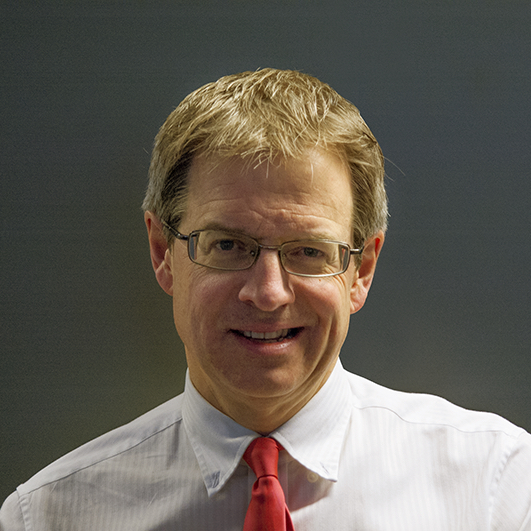Decisive church action is combatting vaccine hesitancy
The Rev'd Dr Duncan Dormor, USPG General Secretary
Most of us are used to the idea – but in reality – the idea of a vaccine is pretty strange. Offering your arm to a needle filled with biological material generated from a hostile virus, manipulated in laboratories you haven’t seen, by people you haven’t met, from a different culture – to fight an unseen enemy, which may not have affected anyone you know.
If one throws into the mix the difficulties all humans have in evaluating personal risk and a whole host of rumours - that the vaccines were produced hastily or can affect women’s fertility, or worse, could even kill you – then hesitancy is entirely natural and reasonable. Especially on the part of those with limited experience of vaccines.
There is a clear need for reassurance. In short, people need to have faith in the science and medicine. Across much of Africa, it is the churches that are best placed to provide that vital reassurance. Best placed because the churches, especially the Anglican Church, has a long history of engagement not just with providing pastoral care and practical support for individuals and communities, but also with the provision of both healthcare and education.
In short, the churches and their leaders are trusted because of their long-standing commitment to the care of mind and body, as well as spirit.
That is why Anglican leaders in Tanzania, Malawi, Zimbabwe, among others, are taking decisive action within their communities to address the issue of vaccine hesitancy. (For more details, see our vaccine hesitancy appeal.)
Naturally they are utilising their networks of churches which reach into every corner of their respective nations to implement urgent health programmes and disseminate accurate information to enhance the rates of vaccine uptake. In this they are partnering with government agencies to maximise effectiveness.
But Anglican bishops are also putting themselves across all the relevant media channels. And they are taking a highly strategic and professional approach - delivering tailored messages targeted to segments of the population that have higher level of vaccine hesitancy. They are bringing a message of encouragement to their members and others, who trust and respect the church, to have faith, to place their trust in the vaccines.
The churches are responding to the challenge of the moment and playing a critical role in health education and tackling vaccine hesitancy. In this they will have a significant impact on the spread of the virus, but also on its wider social and economic implications. We, in turn, should not be hesitant in our support and solidarity.

